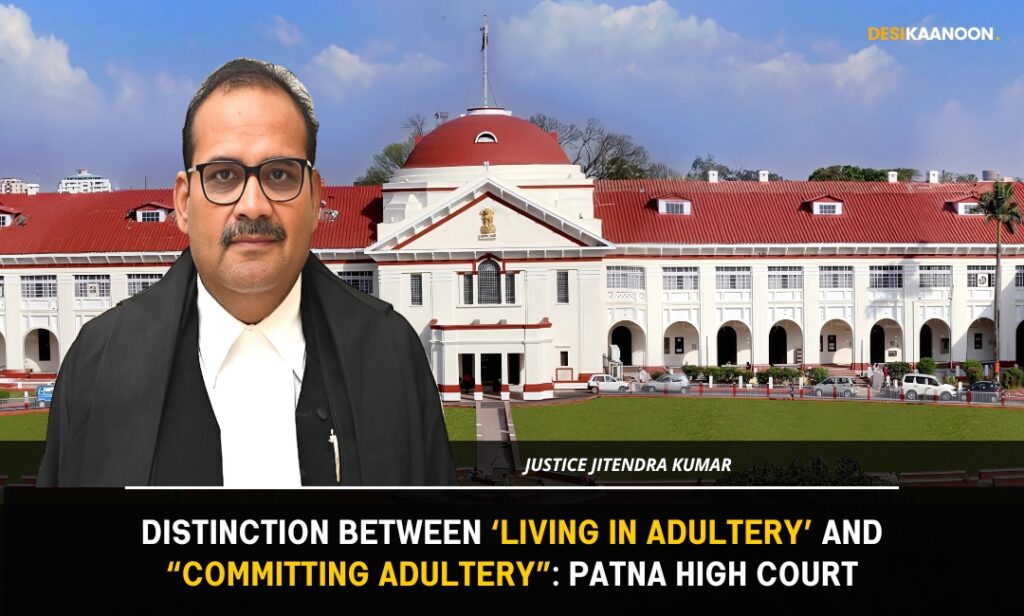Shahin Akhtar
The Patna High Court on 07.07.2025 delivered a landmark judgment regarding maintenance, emphasizing the distinction between “Living in Adultery” and “Committing Adultery.” The Court’s decision came in response to a Criminal Revision Petition challenging the Family Court’s order, which granted maintenance to the son but denied it to the wife.
The petitioner, Bulbul Khatoon, and her husband, Md. Shamshad, were married in 2013 according to Muslim rites and customs. They had a son in 2014. However, the relationship soured, and the wife alleged that her husband and his family demanded additional dowry, leading to her ouster from the matrimonial home in 2017. The husband’s decision to remarry led the wife to pursue maintenance for herself and their child.
In a significant observation, Justice Jitendra Kumar noted a crucial distinction between “Living in Adultery” and “Committing Adultery,” highlighting that the former involves an ongoing pattern of behaviour, while the latter pertains to individual instances of infidelity. The Court emphasized that a mere lapse or one or two instances of infidelity do not constitute “Living in Adultery.” To establish that a woman is living in adultery, there must be evidence of a continued adulterous life.
The Court found that the husband failed to prove that his wife was living in an adulterous life with another man. The Family Court’s decision to deny maintenance to the wife was based on a finding that was not supported by cogent evidence. Therefore, the High Court set aside the impugned order and held that the wife was entitled to maintenance.
The Court also addressed the issue of divorce, noting that the husband’s claim of having divorced his wife through Triple Talaq was void and illegal, as per the Supreme Court’s judgment in Shayara Bano v. Union of India and Ors. AIR 2017 SC 4609. Even if the wife were considered divorced, the husband’s liability to maintain her would still exist, as he had not paid maintenance during the iddat period or made provisions for her life.
The Patna High Court allowed the petition and directed the husband to pay Rs. 4,000 and Rs. 2,000 as maintenance to his son and wife, respectively. This decision highlights the importance of understanding the nuances of adultery and its implications for maintenance claims. The Court’s emphasis on the distinction between “Living in Adultery” and “Committing Adultery” provides clarity on this complex issue.
The ruling also underscores the significance of providing evidence to support claims of adultery and the need for a thorough examination of the circumstances surrounding the relationship. By setting aside the Family Court’s order and granting maintenance to the wife, the High Court has demonstrated its commitment to upholding the rights of individuals, particularly women, in matters of maintenance.
Case Name: Bulbul Khatoon & Anr. v. The State of Bihar
Case No.: Crl. Rev. No. 509 of 2021
Bench: Justice Jitendra Kumar
Click here to access the Order
Instagram: Click here
LinkedIn: Click here
For Collaboration and Business: info.desikaanoon@gmail.com

